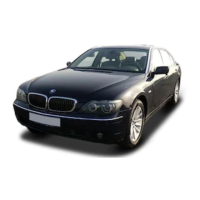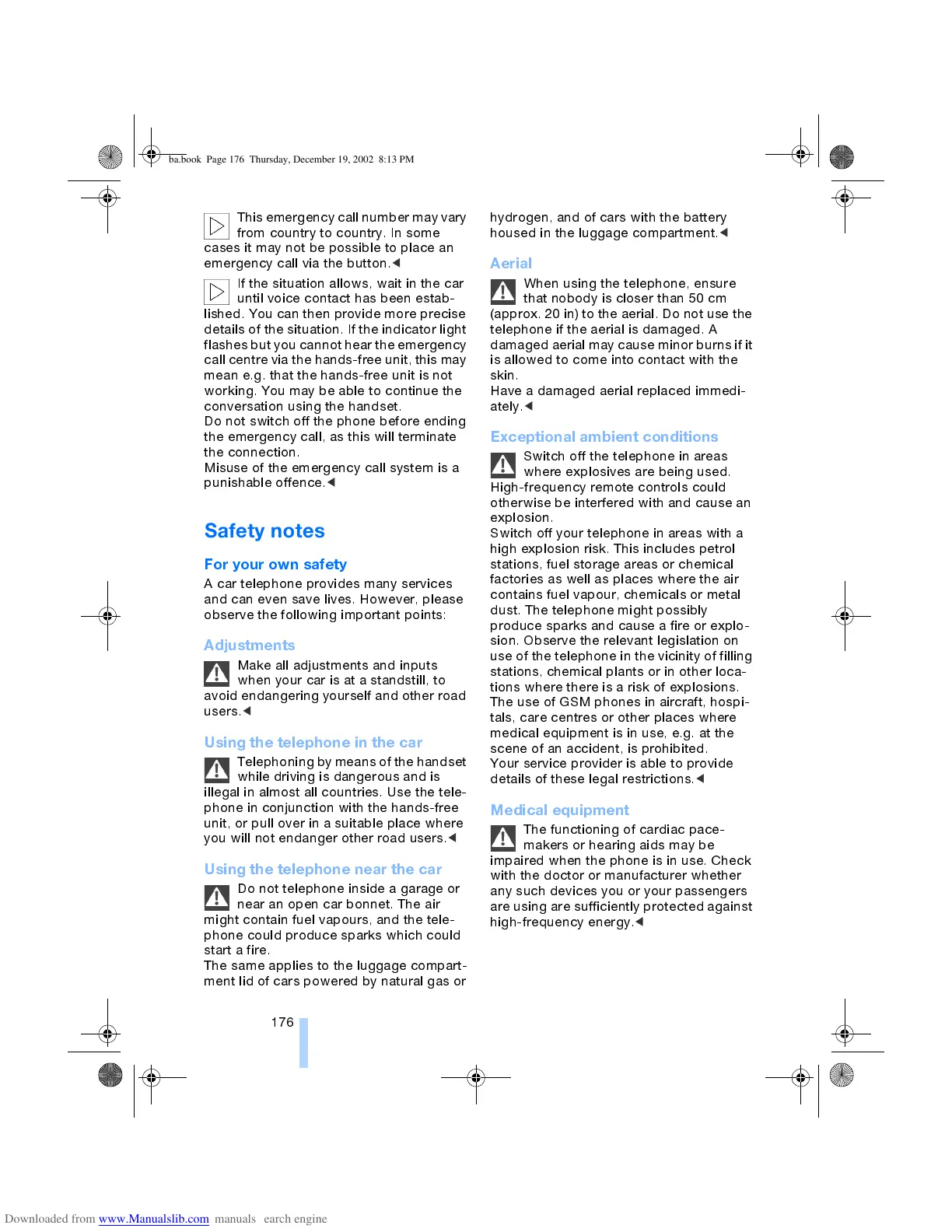Overview of the telephone
176
This emergency call number may vary
from country to country. In some
cases it may not be possible to place an
emergency call via the button.
<
If the situation allows, wait in the car
until voice contact has been estab-
lished. You can then provide more precise
details of the situation. If the indicator light
flashes but you cannot hear the emergency
call centre via the hands-free unit, this may
mean e.g. that the hands-free unit is not
working. You may be able to continue the
conversation using the handset.
Do not switch off the phone before ending
the emergency call, as this will terminate
the connection.
Misuse of the emergency call system is a
punishable offence.
<
Safety notes
For your own safety
A car telephone provides many services
and can even save lives. However, please
observe the following important points:
Adjustments
Make all adjustments and inputs
when your car is at a standstill, to
avoid endangering yourself and other road
users.
<
Using the telephone in the car
Telephoning by means of the handset
while driving is dangerous and is
illegal in almost all countries. Use the tele-
phone in conjunction with the hands-free
unit, or pull over in a suitable place where
you will not endanger other road users.
<
Using the telephone near the car
Do not telephone inside a garage or
near an open car bonnet. The air
might contain fuel vapours, and the tele-
phone could produce sparks which could
start a fire.
The same applies to the luggage compart-
ment lid of cars powered by natural gas or
hydrogen, and of cars with the battery
housed in the luggage compartment.
<
Aerial
When using the telephone, ensure
that nobody is closer than 50 cm
(approx. 20 in) to the aerial. Do not use the
telephone if the aerial is damaged. A
damaged aerial may cause minor burns if it
is allowed to come into contact with the
skin.
Have a damaged aerial replaced immedi-
ately.
<
Exceptional ambient conditions
Switch off the telephone in areas
where explosives are being used.
High-frequency remote controls could
otherwise be interfered with and cause an
explosion.
Switch off your telephone in areas with a
high explosion risk. This includes petrol
stations, fuel storage areas or chemical
factories as well as places where the air
contains fuel vapour, chemicals or metal
dust. The telephone might possibly
produce sparks and cause a fire or explo-
sion. Observe the relevant legislation on
use of the telephone in the vicinity of filling
stations, chemical plants or in other loca-
tions where there is a risk of explosions.
The use of GSM phones in aircraft, hospi-
tals, care centres or other places where
medical equipment is in use, e.g. at the
scene of an accident, is prohibited.
Your service provider is able to provide
details of these legal restrictions.
<
Medical equipment
The functioning of cardiac pace-
makers or hearing aids may be
impaired when the phone is in use. Check
with the doctor or manufacturer whether
any such devices you or your passengers
are using are sufficiently protected against
high-frequency energy.
<
ba.book Page 176 Thursday, December 19, 2002 8:13 PM

